
Leonardo da Vinci died five hundred years ago last year, and galleries all over the world commemorated this quincentenary. However, it was only long after his death – after the re-discovery of his collection of notebooks – that other academic fields could legitimately start to claim Leonardo as one of their own. So, what does this polymath, Renaissance man, genius, have to add to the study of philosophy?
Well, surely if being a philosopher is anything, it is using enquiry to test claims and hypotheses from first principles, including using experiments to discern whether or not truth can be reached from them. Indeed, as Ludwig Wittgenstein stated, “Philosophy is not a body of doctrine but an activity” (Tractatus Logico-Philosophicus, 1923) – in which case we might have plenty to learn, not from a systematic exposition of a doctrine or the expounding of a theory, but from Leonardo’s life, his methods, and his spirit. From the select highlights of his life and work in this brief summary, I think anyone who holds even a fraction of Leonardo’s restlessness or curiosity can find something within his vast field of enquiry to deepen their own understanding.
Leonardo Observes Life
This story is from the {{IssueName}} edition of {{MagazineName}}.
Start your 7-day Magzter GOLD free trial to access thousands of curated premium stories, and 9,000+ magazines and newspapers.
Already a subscriber ? Sign In
This story is from the {{IssueName}} edition of {{MagazineName}}.
Start your 7-day Magzter GOLD free trial to access thousands of curated premium stories, and 9,000+ magazines and newspapers.
Already a subscriber? Sign In

Anselm (1033-1109)
Martin Jenkins recalls the being of the creator of the ontological argument.

Is Brillo Box an Illustration?
Thomas E. Wartenberg uses Warhol's work to illustrate his theory of illustration.

Why is Freedom So Important To Us?
John Shand explains why free will is basic to humanity.
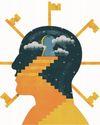
The Funnel of Righteousness
Peter Worley tells us how to be right, righter, rightest.
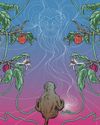
We're as Smart as the Universe Gets
James Miles argues, among other things, that E.T. will be like Kim Kardashian, and that the real threat of advanced AI has been misunderstood.
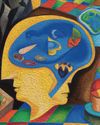
Managing the Mind
Roger Haines contemplates how we consciously manage our minds.
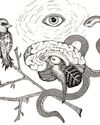
lain McGilchrist's Naturalized Metaphysics
Rogério Severo looks at the brain to see the world anew.

Love & Metaphysics
Peter Graarup Westergaard explains why love is never just physical, with the aid of Donald Davidson's anomalous monism.

Mary Leaves Her Room
Nigel Hems asks, does Mary see colours differently outside her room?
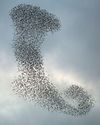
From Birds To Brains
Jonathan Moens considers whether emergence can explain minds from brains.